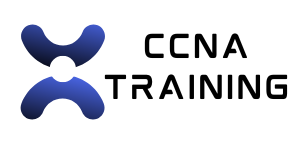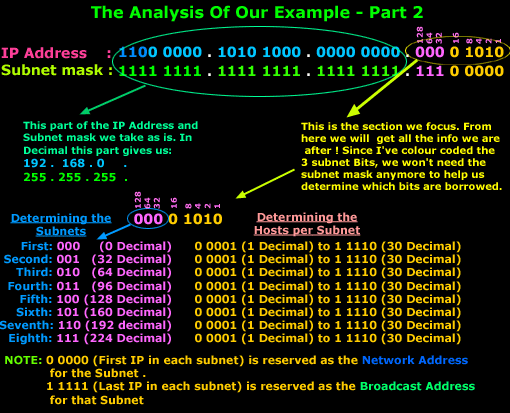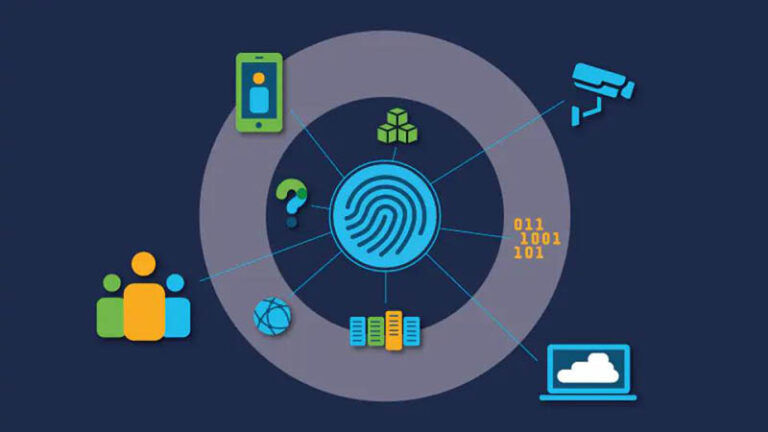The Cisco Certified Network Associate (CCNA) certification is a widely recognized credential in the IT industry. It validates an individual’s ability to install, configure, operate, and troubleshoot medium-sized routed and switched networks. The CCNA is an entry-level certification suitable for those starting a career in networking.
It covers a broad range of topics, including networking fundamentals, LAN switching technologies, routing technologies, infrastructure services, and infrastructure maintenance. To obtain the CCNA certification, candidates must possess a solid understanding of networking concepts and technologies. This includes knowledge of data transmission over networks, various network devices, and communication protocols.
Proficiency in IP addressing, subnetting, routing, and switching concepts is crucial. A strong foundation in these areas is essential for success in the CCNA certification exam. In addition to technical knowledge, problem-solving skills and the ability to troubleshoot network issues are vital.
The CCNA exam assesses a candidate’s capability to identify and resolve network problems, making a strong troubleshooting mindset essential. Success in obtaining the CCNA certification relies on a comprehensive understanding of networking fundamentals combined with robust problem-solving skills.
Key Takeaways
- CCNA is a foundational certification for networking professionals, covering basic networking concepts and skills.
- Setting clear goals for CCNA success is essential for staying focused and motivated throughout the preparation process.
- Developing a study plan that includes regular study sessions and practice tests can help in effective preparation for the CCNA exam.
- Utilizing resources such as study guides, online courses, and practice exams can enhance the preparation for CCNA.
- Practicing with hands-on labs is crucial for gaining practical experience and reinforcing theoretical knowledge for the CCNA exam.
Setting Clear Goals for CCNA Success
Defining Your Objectives
Setting clear goals is crucial for achieving success in obtaining the CCNA certification. Before starting your preparation, it’s essential to define your goals and objectives for obtaining the certification. This includes setting a target date for taking the exam, determining the score you want to achieve, and identifying the specific areas of networking that you want to focus on.
Creating a Roadmap for Success
By setting clear goals, you can create a roadmap for your preparation and stay focused on what you need to accomplish. In addition to setting overall goals for obtaining the CCNA certification, it’s also important to set smaller, more manageable goals along the way. This could include setting weekly or monthly study targets, such as completing a certain number of practice questions or labs.
Tracking Progress and Staying Motivated
By breaking down your goals into smaller tasks, you can make your preparation more manageable and track your progress more effectively. Setting clear and achievable goals will help keep you motivated and focused throughout your preparation for the CCNA certification. Furthermore, it’s important to regularly review and adjust your goals as needed. As you progress through your preparation, you may find that certain areas require more focus or that you need to adjust your study schedule.
Developing a Study Plan

Developing a study plan is crucial for effective preparation for the CCNA certification exam. A study plan will help you organize your study materials, set a schedule for studying, and ensure that you cover all the necessary topics before taking the exam. When developing a study plan, it is important to consider your current level of knowledge and the amount of time you have available for studying.
One approach to developing a study plan is to start by identifying the topics that are covered in the CCNA exam blueprint. This will help you understand the scope of the exam and the specific areas that you need to focus on. Once you have identified the topics, you can then allocate time for studying each topic based on its complexity and your current level of understanding.
It is important to be realistic when allocating time for studying each topic and to ensure that you have enough time to cover all the material before the exam. Another important aspect of developing a study plan is to incorporate different study methods and resources. This could include using study guides, online courses, practice exams, and hands-on labs.
By incorporating a variety of study methods, you can reinforce your understanding of the material and ensure that you are well-prepared for the exam. Additionally, it is important to schedule regular review sessions in your study plan to reinforce your learning and identify any areas that require further attention.
Utilizing Resources for CCNA Preparation
| Resource | Type | Pros | Cons |
|---|---|---|---|
| Official Cisco CCNA Study Guide | Book | Comprehensive content | Can be overwhelming for beginners |
| Online Video Tutorials | Video | Visual learning experience | May lack depth in some topics |
| Practice Exams | Online | Helps in assessing knowledge | May not cover all exam topics |
| Study Groups | Community | Peer support and collaboration | Dependent on group dynamics |
There are a wide range of resources available to help you prepare for the CCNA certification exam. These resources can include study guides, online courses, practice exams, and hands-on labs. When preparing for the CCNA exam, it is important to utilize a variety of resources to ensure that you have a comprehensive understanding of the material.
One valuable resource for CCNA preparation is study guides. Study guides provide a structured approach to learning the material covered in the exam blueprint and can help you focus on key concepts and topics. Additionally, study guides often include practice questions and exercises to reinforce your understanding of the material.
It is important to choose a study guide that aligns with your learning style and provides comprehensive coverage of the exam topics. In addition to study guides, online courses can be a valuable resource for CCNA preparation. Online courses provide interactive learning experiences and can help reinforce your understanding of networking concepts through video lectures, demonstrations, and hands-on exercises.
Many online courses also include practice exams and quizzes to help assess your knowledge and identify areas that require further attention. Practice exams are another essential resource for CCNA preparation. Practice exams can help familiarize you with the format of the CCNA exam and assess your readiness for the actual exam.
By taking practice exams, you can identify areas where you need to focus your study efforts and gain confidence in your knowledge of the material. Finally, hands-on labs are an invaluable resource for CCNA preparation. Hands-on labs provide practical experience with networking equipment and technologies, allowing you to apply the concepts you have learned in a real-world environment.
By practicing with hands-on labs, you can gain confidence in configuring and troubleshooting network devices, which will be essential for success in the CCNA exam.
Practicing with Hands-On Labs
Hands-on labs are an essential component of preparing for the CCNA certification exam. Hands-on labs provide practical experience with networking equipment and technologies, allowing you to apply the concepts you have learned in a real-world environment. By practicing with hands-on labs, you can gain confidence in configuring and troubleshooting network devices, which will be essential for success in the CCNA exam.
One approach to practicing with hands-on labs is to use virtual lab environments. Virtual lab environments allow you to simulate networking scenarios using software-based network devices. This provides a cost-effective way to gain practical experience with networking technologies without needing access to physical networking equipment.
Many online courses and study guides include virtual lab environments that align with the topics covered in the CCNA exam blueprint. Another approach to practicing with hands-on labs is to set up a physical lab environment using networking equipment such as routers, switches, and access points. This approach provides a more realistic experience with networking equipment and allows you to gain practical experience with physical devices.
Setting up a physical lab environment can be more costly and time-consuming than using virtual labs but can provide valuable hands-on experience that will benefit you in the CCNA exam and in your future career as a network engineer. Regardless of whether you use virtual or physical lab environments, it is important to practice a wide range of networking scenarios. This could include configuring VLANs, setting up routing protocols, troubleshooting network connectivity issues, and securing network devices.
By practicing with hands-on labs, you can reinforce your understanding of networking concepts and gain practical experience that will be invaluable for success in obtaining the CCNA certification.
Understanding Exam Strategies

Mastering Multiple-Choice Questions
To excel in the CCNA exam, it’s essential to develop effective strategies for approaching multiple-choice questions. Carefully read each question and all answer choices before selecting an answer. A helpful technique is to eliminate obviously incorrect answers first and then carefully consider the remaining choices before making your selection. Additionally, manage your time effectively to ensure you have enough time to answer all questions on the exam.
Conquering Simulations and Simlets
When tackling simulations and simlets, approach each scenario methodically and systematically. Verify network configurations, identify issues or misconfigurations, and apply troubleshooting steps as needed. Remain calm and focused, and don’t let time pressure affect your problem-solving abilities.
Effective Time Management for Overall Exam Success
In addition to specific question types, develop effective time management strategies for the overall exam. Allocate a certain amount of time for each section of the exam and ensure you have enough time at the end to review any questions you may have skipped or flagged for review. This will help you stay on track and make the most of your exam time.
Staying Motivated and Focused
Staying motivated and focused throughout your preparation for the CCNA certification exam is essential for success. The process of preparing for a certification exam can be challenging and demanding, so it is important to maintain motivation and focus throughout your preparation. One approach to staying motivated is to remind yourself of the benefits of obtaining the CCNA certification.
This could include career advancement opportunities, increased job prospects, and personal satisfaction in achieving a significant milestone in your career. By keeping these benefits in mind, you can stay motivated during times when studying may feel overwhelming or challenging. Another approach to staying motivated is to set aside time for self-care and relaxation during your preparation.
This could include taking regular breaks from studying, engaging in physical activity or hobbies that you enjoy, and spending time with friends and family. By taking care of your physical and mental well-being, you can maintain a positive mindset and stay motivated throughout your preparation. Additionally, it can be helpful to connect with other individuals who are also preparing for the CCNA certification exam.
This could include joining online forums or study groups where you can share experiences, ask questions, and provide support to others who are also preparing for the exam. By connecting with others who are going through a similar experience, you can gain motivation from their successes and support during challenging times. In conclusion, obtaining the CCNA certification requires a solid understanding of networking fundamentals, clear goals for success, a well-developed study plan, utilization of various resources, practice with hands-on labs, effective exam strategies, and staying motivated throughout the preparation process.
By following these guidelines and staying committed to your preparation efforts, you can increase your chances of success in obtaining the CCNA certification and advancing your career in the field of networking.
If you’re interested in learning more about securing a Cisco network, check out this article for a comprehensive guide on how to protect your network from potential threats and vulnerabilities.
FAQs
What is CCNA?
CCNA stands for Cisco Certified Network Associate. It is a certification program offered by Cisco Systems that validates the ability to install, configure, operate, and troubleshoot medium-size routed and switched networks.
What are the prerequisites for taking the CCNA exam?
There are no formal prerequisites for taking the CCNA exam, but it is recommended that candidates have a good understanding of networking fundamentals and basic IP addressing.
What topics are covered in the CCNA exam?
The CCNA exam covers a wide range of topics including network fundamentals, network access, IP connectivity, IP services, security fundamentals, and automation and programmability.
How long is the CCNA certification valid for?
The CCNA certification is valid for three years. After three years, individuals can recertify by passing the current CCNA exam or any of the higher-level Cisco certification exams.
What are the benefits of obtaining a CCNA certification?
Obtaining a CCNA certification can lead to increased job opportunities, higher salary potential, and the ability to demonstrate a solid understanding of networking concepts and technologies.















